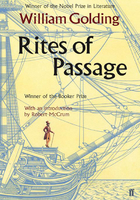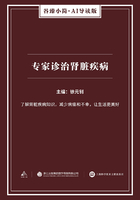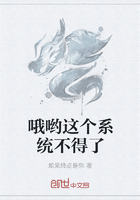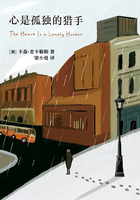This family is not going to any unnecessary expense; only music should operate here, by itself and of its own accord. Music should beat its path into the hearts of the listeners here. After all, the family is spending next to nothing on itself. Erika has virtually subpoenaed all her piano students. The professor only has to wave her little finger. The children bring a proud mother, a proud father, or both, and these intact nuclear families fill the premises. The pupils know they would receive poor grades if they didn't show up. Death would be the sole excuse for abstaining from art. Other reasons are simply not understood by the professional art lover. Erika Kohut is brilliant.
As a curtain-raiser, Bach's second concerto for two pianos. The second piano is played by an old man, who, earlier in his life, once performed at Brahms Hall, on a single piano all to himself. Those times are past, but the oldest people here can still remember. The approaching reaper seems unable to prod this gentleman, whose name is Dr. Haberkorn, to repeat the marvels he, the reaper, once achieved with Mozart and Beethoven, as well as Schubert. And Schubert certainly didn't have much time. Before we begin, the old man, despite his age, greets Professor Erika Kohut, his partner at the second keyboard, by gallantly kissing her hand-a national custom.
Dear music lovers and guests. The guests dash to the table and smack their lips over the Baroque ragout. Pupils scrape their feet at the very start, their heads filled with evil desires, but lacking the courage to carry them out. They do not escape from this chicken coop of artistic devotion even though the laths are quite thin. Erika wears a silk blouse and a simple, floor-length black velvet chimney skirt. Barely shaking her head, she eyes some of her pupils with a glare that could cut glass (the very glare her mother hurled at her daughter's skull after Erika messed up her big concert). The two pupils were talking, thus disrupting the host's introduction. They will not be warned a second time. In the front row, next to the hostess, Erika's mother sits in a special armchair, feeding on a box of candy (she is the only one permitted to do so) and feasting on the attention enjoyed by her daughter.
The light is vehemently dimmed when a cushion is propped against the piano lamp. The cushion causes the players to be shrouded in a demonic red glow. Bach rushes by earnestly. The pupils are in their Sunday best, or what their parents consider their Sunday best. Moms and dads have crammed their offspring into this Polish vestibule so that the parents can have some peace and the children can learn some quiet. The Polish vestibule is decorated with a gigantic Art Nouveau mirror depicting a naked maiden with water lilies on which little boys stand still forever. Later, up in the music room, the children will sit in front and the adults in back, because they're above it all. The elder ones give the host and hostess a hand when it's time to make a younger colleague stop short.
Walter Klemmer hasn't missed a single evening here since sweet seventeen, when he started working a piano seriously and not just for fun. Here he receives inspirations for his own playing-cashlike incentives.
The Bach swirls into the presto movement, and Klemmer, with a spontaneous hunger, scrutinizes the back of his piano teacher, whose body is cut off by the stool. That is all he can see of her figure, all he can judge it by. He cannot make out her front part because a fat mother blocks his view. (His favorite seat is occupied today. During lessons, SHE always sits at the second piano.) The maternal frigate is flanked by a tiny lifeboat, her son, a beginner, wearing black trousers, a white shirt, and a red bow tie with white dots. The boy is already slouching in his seat, like a nauseated airplane passenger who only wants the plane to land. Art sends Erika gliding through higher air corridors, almost off into the ether. Walter Klemmer eyes her anxiously, because she is floating away from him. But he is not the only person to reach out to her involuntarily. Her mother likewise grabs the string of this kite known as Erika. Don't let go of the string! It already yanks away so violently that Mother has to stand on tiptoe. The wind howls fiercely around the kite as it always does at this high altitude.
During the final movement of the Bach, Herr Klemmer gets a red rosette on each cheek, left and right. He then holds a single red rose in his hand in order to present it afterward. He unselfishly admires Erika's technique, he admires the way her back moves to the beat, the way her head sways, judiciously weighing the nuances she produces. He sees the play of muscles in her upper arm, he is excited by the collision of flesh and motion. The flesh obeys an inner motion that has been triggered by the music, and Klemmer beseeches his teacher to obey him some day. He masturbates in his seat. One of his hands involuntarily twitches on the dreadful weapon of his genital. The student has a hard time controlling himself as he mentally gauges Erika's overall proportions. He compares her upper part with her lower part, which may be a tad too plump, but he basically enjoys that. He balances the upper part against the lower part. The upper part: just a tad too thin. The lower part: it has its plus. But Klemmer likes Erika's overall appearance. He personally finds that Fr?ulein Kohut is a delightful-looking woman. If, furthermore, she pushed up some of her lower excess, she would be quite attractive. The reverse process would also be possible, of course, but Klemmer wouldn't like that as much. If she planed away something below, her entire body would be quite harmonious. But then she'd be too thin again! It is this minor imperfection that makes Erika so accessible to, hence desirable for, the grown-up student. You can capture any woman if you exploit her awareness of her own physical inadequacies. Besides, this woman is growing visibly older, and he is still young. Klemmer has a second goal, along with music; and he now thinks it through. He is crazy about music. He is also secretly crazy about his music teacher. He is of the highly personal opinion that Fr?ulein Kohut is the very woman a young man desires as an overture to life. The young man starts out on a small scale and climbs rapidly. Everyone has to start sooner or later. Soon he will be able to leave the beginner's level behind him, just like a new driver, who first buys a small secondhand car, then replaces it with a new and bigger model as soon as he becomes an experienced driver.
Fr?ulein Erika consists purely of music, and she's not all that old. That's how her student evaluates his experimental model. Klemmer even starts out one level higher: no VW, but an Opel Cadet. Walter Klemmer, secretly in love, clamps his teeth into the vestige of one of his fingernails. His face is red all over, the rosettes have spread out, and his shoulder-length hair is dark blond. He is moderately stylish. He is moderately intelligent. There is nothing salient about him, there is nothing excessive. He's let his hair lengthen a bit, so as not to look too up-to-date, but also not too old-fashioned. He won't grow a beard, though he has often been tempted to do so. He has always managed to resist this temptation. Someday, he'd like to give his teacher a long kiss and feel up her body. He wants to confront her with his animal instincts. He wants to graze her firmly, almost accidentally, as if some clumsy oaf were pushing him against her. He will then press harder against her, but apologize. Eventually, he will press against her on purpose, perhaps rub against her firmly if she lets him. He will do what she tells him to do, he wants to profit from her, then apply his experiences to more serious loves later on. He would like to learn from a much older woman-you don't have to be that careful with her. He would like to learn how to deal with young girls, who won't put up with as much nonsense. Does this have anything to do with civilization? The young man must first stake off his borders; then he can cross them successfully. Soon, he will kiss his teacher until she almost suffocates. He will suck her all over, wherever he may. He will bite her wherever she lets him. Later on, he will consciously indulge in extreme intimacies. He will start with her hand and work his way up. He will teach her how to love, or at least accept, the body she has always negated. He will cautiously teach her everything she needs for love, but then he will turn to more rewarding goals and more difficult tasks in regard to the female enigma. The eternal enigma. Someday he will become her teacher. He doesn't like those dark-blue pleated skirts and shirtwaists she always wears, and with so little self-awareness to boot. Her clothes should be youthful and colorful. Colors! He will explain to her what he means in regard to colors. He will show her what it means to be truly young and particolored and to enjoy it properly. And when she knows how young she really is, he will leave her for a younger woman. I have a feeling that you despise your body and that you only value art, Professor Kohut, says Klemmer. You only value your urgent needs, but eating and sleeping aren't enough! Fr?ulein Kohut, you believe that your appearance is your enemy, and the only friend you have is music. Why, just look in the mirror, look at your reflection, you'll never find a better friend than yourself. So just make yourself a little pretty, Fr?ulein Kohut. If I may call you that.
Herr Klemmer would love to be friends with Erika. After all, this shapeless cadaver, this piano teacher, whose profession is as plain as the nose on her face, could still develop; for this flabby bag of tissue isn't too old at all. Why, she's relatively young, compared with her mother. This pathologically twisted joke of a creature, this rapturous idiot, clutching her ideals, living only spiritually, will be spun around by this young man: from otherworldly to worldly. She'll enjoy the delights of love, just wait! In the summer, and even in the spring, Walter Klemmer goes white-water canoeing. He even loops around gates. He conquers his element. And he will likewise subjugate his teacher, Erika Kohut. One fine day, he'll even show her the structure of a canoe. Next, she'll have to learn how to keep it afloat. By then he'll be calling her by her first name: Erika! This bird will feel her wings growing; the man will see to it.
Some men like one thing; Herr Klemmer likes this.
Bach has come to rest. His run is finished. Both performers, the master and the mistress, rise from their stools and bow their heads. They are patient horses sticking their noses into the feedbags of everyday life, which has reawakened. They say they are bowing their heads to Bach's genius rather than to this meagerly applauding crowd, which understands nothing and is too stupid even to ask questions. Only Erika's mother claps till her hands hurt. She shouts, Bravo! Bravo! Her appreciation is supported by the smiling hostess.
The crowd, shanghaied from a dung heap and sporting such ugly colors, now scrutinizes Erika. They blink into the light. Someone has removed the cushion from the lamp, and the lamp can shine unhindered. So this is Erika's audience. If you didn't know that these are supposed to be human beings, you could scarcely believe your eyes. Erika is far superior to any of them, but they are already thronging about her, brushing against her, talking nonsense. She has bred this young audience in her own incubator. Using dishonest methods, such as coercion, extortion, intimidation, she ordered these youngsters to come here. The only one who isn't here under duress is probably Herr Klemmer, the hardworking student. The rest would rather be watching TV, playing Ping-Pong, reading a book, or doing something equally stupid. They all had to come. They seem to delight in their mediocrity! Yet they dare to tackle Mozart, Schubert! They take up room: fat islands floating in the amniotic fluid of the notes. They imbibe temporarily, but do not understand what they are drinking. After all, people with a herd instinct hold mediocrity in high esteem. They praise it as having great value. They believe they are strong because they are the majority. The middling level has no terrors, no anxieties. They huddle together, indulging in the illusion of warmth. If you're in the middle, then you're alone with nothing, and certainly not yourself. And how content they are with that state of affairs! Nothing in their existence offers them any reproaches and no one could reproach them for their existence. And even Erika's reproaches that an interpretation is unsuccessful would simply bounce off this soft, patient wall. For Erika, you see, is all alone on the other side, and instead of being proud of her situation, she wreaks vengeance. Every three months, she forces the others to pass through the gate, which she holds open, so that these sheep can listen to her perform. Running a gamut from self-complacency to boredom, they now dash off, baaing, jostling, falling all over one another when some unreasonable individual holds them up because he hung his coat underneath, and now he can't find it. First, all of them want to get in; then they all want to get out as fast as possible. And always in unison. They imagine that the sooner they can get to the other pasture, the pasture of music, the sooner they can leave it. But now all of Brahms is coming, after a brief intermission, ladies and gentlemen. Dear students. Today, Erika's exceptional status is not a failing, but an asset. For they are all gaping and gawking at her even though they secretly hate her.
Herr Klemmer, winding his way over to her, beams at her with festive blue eyes. His two hands reach for her pianist hand, and he says, Congratulations, adding that words fail him, Professor. Erika's mama cuts in, emphatically prohibiting any handshake. There is to be no sign of friendship because it could twist the tendons and interfere with her playing. The hand should remain in its natural position, if you please. Well, we don't have to be all that particular for this third-class audience, do we, Herr Klemmer? One has to tyrannize them, one has to suppress them and oppress them, just to get through to them. One should use clubs on them! They want thrashings and a pile of passions that each composer should experience vicariously for them and carefully set down. They want shouts and shrieks, otherwise they would have to shout and shriek all the time. Out of boredom. The gray tones, the fine nuances, the delicate distinctions are beyond their grasp anyway. Yet in music, as in any realm of art, it is much easier juxtaposing harsh contrasts, brutal antitheses. But that's trash, nothing more! These lambs don't know it. They don't know anything. Erika takes hold of Klemmer's arm; this intimate gesture makes him tremble.. He can't be cold amid these healthy teenagers with their excellent circulation; these barbarians who have eaten their fill, in a country whose culture is ruled by barbarians. Just look at the newspapers: They're more barbaric than the things they report on. A man who meticulously slices up his wife and children and then stores them in the refrigerator in order to eat them later on is no more barbaric than the newspaper that runs the item. And then the papers call each other names. Klemmer, just imagine! And now I've got to say hello to Professor Vyoral, if you don't mind. I'll see you later, Herr Klemmer!
Mother grabs a light-blue angora jacket that she crocheted herself and drapes it over Erika's shoulders. The lubricant mustn't suddenly freeze in these joints, raising the frictional resistance. The little jacket is like a cozy over a teapot. Sometimes useful things like toilet-paper rollers have such homemade caskets on them, with colorful pom-poms. They decorate the rear windows of cars. Right in the center. Erika's pom-pom is her head, which looms proudly. She trips along on her high heels across the smooth ice of the inlaid floor (areas subject to great stress are protected today by cheap runners). Erika heads toward an older colleague in order to receive congratulations from expert lips. Mother gently pushes her forward. Mother has a hand on Erika's back, on her right shoulder blade, on the angora jacket.
Walter Klemmer still doesn't drink or smoke; nevertheless, he has astonishing amounts of energy. As if attached to her with suction cups, he trails behind his teacher, plowing his way through the clucking horde. He sticks to her. If she needs him, he'll be at hand. If she needs male protection. She only has to turn around and she'll bump right into him. He actually seeks this body check. The brief intermission is almost over. He inhales Erika's presence with flaring nostrils as if he were on a high Alpine meadow that one seldom visits, so one must therefore breathe deeply. In order to bring a lot of oxygen back to the city. He removes a stray hair from the sleeve of the light-blue jacket, reaping thanks, oh, my. Erika's mother nebulously senses something, but she cannot help appreciating his good manners and sense of duty. His behavior contrasts sharply with everything that is customary and necessary nowadays between the sexes. Herr Klemmer is a young man for Erika's mother but a man of the old stamp.
Now for a small chat before we come to the final round. Klemmer wants to know why, and regrets that, such cultivated home recitals are gradually dying out. First the masters died, now their music is dying, because people only want to listen to pop, rock, and punk. Families like our host and hostess no longer exist. In earlier times, there were so many like them. Generations of laryngologists would satiate themselves on, if not wear themselves out with, Beethoven's late quartets. During the day, they painted sore throats; in the evening, they got their reward when they hobnobbed with Beethoven. Today, the academics do nothing but stamp their feet to the beat of Bruckner's elephant trumpets and heap praises on that provincial tunesmith. Scorning Bruckner is a youthful peccadillo to which many people have succumbed, Herr Klemmer. One does not understand him until much later, believe me. Avoid fashionable judgments until you have a wider grasp, my dear colleague. Klemmer is happy to hear the word "colleague" from competent lips. He then launches into poignant jargon about Schubert's and Schumann's darkening descent into madness. He talks about their subtle shades and nuances, while using mothlike tints of gray in gray.
Next comes a Kohut/Klemmer duet, in venomous lemon-yellow, about the local concert business. Molto vivace. Their duet is well rehearsed. Neither musician has any part in this business. They are allowed to participate only as consumers, yet their qualifications are vastly superior! Still, they are nothing but listeners, deluding themselves about their knowledge. One part of this duet could have taken part: Erika. But it didn't come about.
Now the two of them delicately pass across the loose dust of intermediary tones, intermediary worlds, intermediary realms, for this is where the middle stratum feels at home. Schubert's descent into madness opens the dance-like the darkening, as Adorno describes it, in Schumann's Fantasy in C Major. It flows into the far distance, into nothingness, yet without wearing the apotheosis of conscious fading! It darkens without realizing it, indeed without referring to itself! The duettists grow silent for a moment in order to enjoy the things they have articulated in an inappropriate place. Each of them thinks he understands more than the other; one thinks so because of his youth, the other because of her maturity. They take turns outdoing each other's fury at the ignorant, the uncomprehending-many of whom are gathered right here. Just look at them, Professor! Just take a good look at them, Herr Klemmer! The bond of scorn links the trainer and the trainee. The fading of Schubert's, of Schumann's, life-light is the extreme opposite of what the healthy masses mean when they call a tradition healthy and wallow in it luxuriantly. Health-how disgusting. Health is the transfiguration of status quo. The hacks who fill up the playbills for the Philharmonic Concerts are the most repulsive conformists. Just imagine: They make something like health the chief criterion of important music. Well, health always sides with the victors; the weak fall away. Yet these sauna-users and happy pissers deserve to fail. Beethoven, the master whom they consider so healthy-yet he was deaf, alas. And that profoundly healthy Brahms. Klemmer precariously tosses something in (and gets his ball into the basket): He has always thought of Bruckner as being very healthy. Klemmer is sharply rebuked. Erika modestly displays the wound inflicted on her by her personal experiences with the music business in Vienna and the provinces. Until she resigned herself. A sensitive person gets burned, like a delicate moth. And that, says Erika Kohut, is why these two extremely sick composers, Schumann and Schubert (they share the first syllable), are closest to my bruised heart. Not the Schumann whose thoughts have all fled him, but the Schumann just before that! A hair's breadth before that! He already has an inkling that his mind will flee, he suffers from his inkling, down to his finest veins, he takes leave of his conscious life as he enters the choirs of angels and demons, yet he clutches that conscious life one final time, even though he is no longer fully conscious of himself. He yearningly tries to catch the fading echoes, he mourns the loss of the most precious thing: himself. This is the phase in which one knows how great the loss of oneself is before one is utterly abandoned.
Erika, in gentle music, tells Klemmer that her father lost his mind and died in the Steinhof Asylum. That is why people have to be considerate of Erika, she has gone through so much. Amid all this splendid and resplendent health, Erika does not want to say any more, but she does drop a few hints. Hoping to flay some feelings out of Klemmer, she ruthlessly applies the chisel. Because of her suffering, this woman deserves every ounce of male interest she can squeeze out. The young man's interest is then harshly reawakened.
The intermission is over. Please be seated. Now come Brahms lieder, sung by a young soprano, a student. And then the recital ends. The Kohut/Haberkorn duo couldn't have been topped anyway. The applause is louder than before the intermission because everyone is relieved that the soirée is over. Even more bravos, not only from Erika's mama, but also from Erika's best pupil. The mother and the best pupil scrutinize each other from the corners of their eyes, both shout energetically and grow terribly suspicious. One wants something; the other does not care to give it up. The light is turned up full blast, so are the chandeliers, nothing is spared in this beautiful moment. The host has tears in his eyes. Erika has played Chopin as an encore, and the host thinks of Poland in the night, the land of his ancestors. The soprano and Erika, her charming accompanist, receive gigantic bouquets of flowers. Two mothers and a father appear, and they likewise present bouquets to the professor, who is helping their children. The gifted young vocalist gets only one bouquet. Erika's mother affably helps mummify the bouquets in tissue paper for the trip home. We only have to carry these gorgeous flowers to the trolley stop and then the trolley will take us comfortably almost to our door. You start by saving on a cab, and you end up with an apartment. Indispensable friends and helpers offer rides in their own cars, but Mother calls them all dispensable. Thanks but no thanks. We accept no favors, and we offer none.
Walter Klemmer strides over and helps his piano teacher into her winter coat with the fox collar; he is quite familiar with her coat from all their lessons. It's got a belt and it's also got that sumptuous fur collar. He covers the mother in her black Persian-lamb-paw coat. He wants to continue the conversation, which had to be interrupted. He instantly says something about art and literature, in case Fr?ulein Kohut has bled out all her music after the triumph she has just celebrated. He latches on to her, digging his dentition into her. He helps her into her sleeves, he is even so bold as to pull her shoulder-length hair out of the collar and arrange it neatly upon the fur. He offers to accompany the two ladies to the trolley stop.
Mother senses something that can't yet be expressed. Erika has mixed feelings about any attention showered upon her. Let's hope it won't turn into hail the size of hen's eggs, the hailstones could strike holes in her! She too has been given a gigantic box of candy; Walter Klemmer has wrested it from her and is now carrying it. He is also holding an orange lily bouquet or something of the sort. Burdened with all kinds of things, not the least of which is music, the three of them (after cordially saying goodbye to our host and hostess) trudge to the trolley stop. The young people should walk ahead, Mama can't keep up with those young feet. Besides, Mama has a much better view from behind and can hear much better. Erika is already hesitating, because poor Mama has to slog along behind them, all alone. Usually, the two Kohut ladies enjoy walking arm in arm, discussing Erika's achievements and unabashedly praising them. But today, some young male upstart is replacing faithful old Mother, who, crumpled and neglected, has to bring up the rear. The apron strings tighten and pull Erika back. They pinch her because Mother has to walk behind her. The fact that she herself offered to do so only makes it worse. If Herr Klemmer weren't so seemingly indispensable, Erika could comfortably walk next to her mother. The two women could ruminate about the recital and perhaps graze in the candy box. A foretaste of the cozy, homey warmth awaiting them in their parlor. Perhaps they can even catch the late show on TV. That would be the nicest finale to such a musical day. And that student keeps getting closer and closer to her. Can't he keep his distance? It's embarrassing to feel a warm, steaming, youthful body next to you. This young man seems so dreadfully intact and carefree that Erika panics. He doesn't intend to burden her with his health, does he? The twosomeness at home, which no one else can share, appears threatened. Who else but Mother could guarantee peace and quiet, order and security in their own four walls? Every fiber in Erika's body longs for her soft TV armchair behind a locked door. She has her customary chair, Mother has her own, with a Persian pouf for her often-swollen feet. Their domesticity goes awry because Klemmer won't skedaddle. He doesn't intend to force his way into their home, does he? Erika would much prefer to creep into her mother and rock gently in the warm fluid of her womb. As warm and moist outside as inside. She stiffens in front of her mother when Klemmer gets too close for comfort.
Klemmer talks and talks. Erika remains silent. Her rare experiments with the opposite sex flash through her mind, but the memories aren't good. Nor was the reality any better. Once it happened with a salesman who tried to pick her up in a café she finally gave in just to shut him up. The wretched collection of white-skinned homebodies is completed by a young law student and a young high school teacher. Since then, years have passed and passed away. After a concert, two academics had held up her coat sleeves like machine-gun barrels, thereby disarming her: They had the more dangerous weapons. After each of these experiences, Erika wanted to get back to her mother as fast as possible. Mother didn't suspect a thing. In this way, Erika grazed through two or three bachelor pads with kitchenettes and sitz baths. Sour pastures for the gourmet of art.















